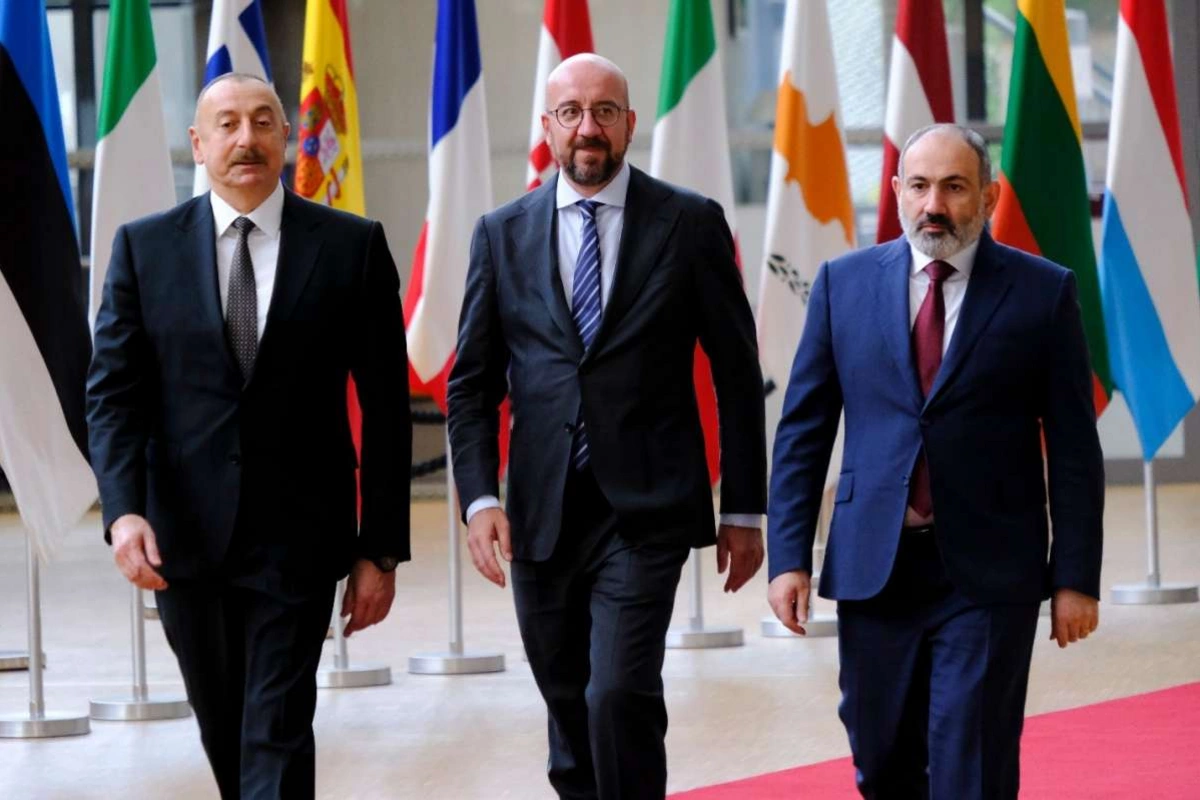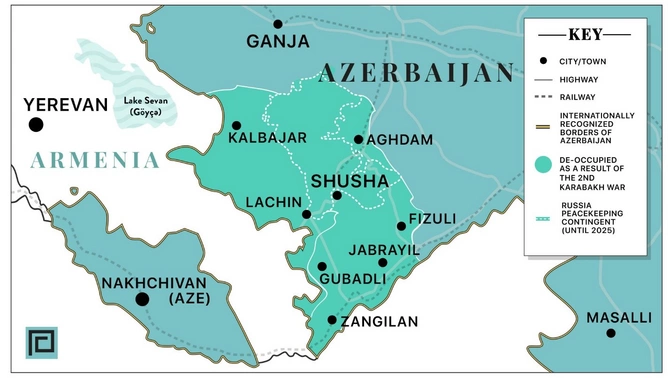
See a brief recap of Brussels meeting between PM Nikol Pashinyan and President Ilham Aliyev. What are the implications?
Image: Alexandros Michailidis/Shutterstock
On 11 May, Armenia and Azerbaijan accused each other of initiating an exchange of fire at a border area between the two countries. This new border clash occurred just days before Azerbaijani President Ilham Aliyev and Armenian Prime Minister Nikol Pashinyan were due to meet in Brussels for talks led by European Council President Charles Michel. Due to this, Pashinyan accused Azerbaijan of looking to “undermine the talks” but stated that he was still willing to attend. Moreover, Aliyev’s foreign policy advisor, Hikmet Hajiyev, stated, “Azerbaijan feels quite comfortable with the Charles Michel mission because [the] EU doesn’t have a hidden agenda.” Despite concerns, the meeting went ahead on 14 May, marking the fifth meeting between the two leaders.
The parties discussed the demarcation of the border and once again recognized each other’s territory, with Azerbaijan’s designated as 86,600 km2 and Armenia’s as 29,800 km2, as per the 1991 Declaration of Alma-Ata. Crucially, Azerbaijan’s figure includes the long-disputed Nagorno-Karabakh region and the seven adjacent Azerbaijani districts that had been under Armenian occupation until 2020. Additionally, on 17 May, Pashinyan, speaking in Reykjavik at the Council of Europe, reiterated this.

Moreover, Michel issued a statement in which he claimed that the leaders shared a common readiness for peace and are ‘close’ to resolving the issues of transport in the region, especially regarding the resumption of railway communication through Nakhchivan. The two leaders have apparently agreed to begin the necessary construction works with a concrete timetable and to enlist the support of the World Customs Organization in supporting the transport route.
This is important as, under the ceasefire agreement that ended the 2020 Second Karabakh War, the establishment of the ‘Lachin Corridor’ to connect Armenia to Karabakh and the ‘Zangezur Corridor’ to allow ‘the unobstructed movement of persons, vehicles, and cargo in both directions’ between Azerbaijan and its exclave Nakhchivan through Armenia was agreed upon, with Russian peacekeepers controlling the Lachin road and Russian border guards overseeing the road to Nakhchivan.
However, construction on the Zangezur Corridor has not yet been completed, and on 23 April 2023, Azerbaijan established a checkpoint on the Lachin road. Armenia strongly opposed the checkpoint, arguing that the trilateral ceasefire agreement does not explicitly approve the installation of such a checkpoint. However, Azerbaijan rejects this, stating that the document also did not reject the establishment of checkpoints on either the Lachin or Zangezur Corridors. Under this view, Azerbaijan has encouraged Armenia to install their own checkpoints—with the principle of reciprocity in mind.
Charles Michel first put forward the reciprocity principle in December 2021 when he suggested that if, for example, a border checkpoint is opened on the Lachin Corridor, then one must be opened on the Zangezur Corridor too, and so on. Aliyev reiterated this point in his meeting with Pashinyan, which was organized by the U.S. Secretary of State Anthony Blinken in Munich in February 2023. The reciprocity principle appears to be beneficial for both sides as in the ceasefire agreement, the period of deployment of Russian peacekeepers is scheduled to end in 2025, meaning that Azerbaijan would likely have had to set up a border checkpoint eventually. However, there is no end date for the presence of Russian border guards on the Zangezur corridor. Therefore, according to the principle, Armenia could set up their own checkpoints, reducing Russian influence over the region.
This latest meeting is part of the West continuing to ramp up its involvement in attempting to broker peace between Azerbaijan and Armenia following Russia’s loss of influence in the region due to its invasion of Ukraine. On 1-4 May 2023, Anthony Blinken hosted the Azerbaijani and Armenian foreign ministers, Jeyhun Bayramov and Ararat Mirzoyan, respectively, at the George P. Schultz National Foreign Affairs Training Centre in Arlington, Virginia. During the talks, Blinken stated that the two sides made “tangible progress on a durable peace agreement,” while Bayramov and Mirzoyan issued a joint statement that while their opinions remain different on some topics, “the parties have agreed to continue discussions.”
Share on social media